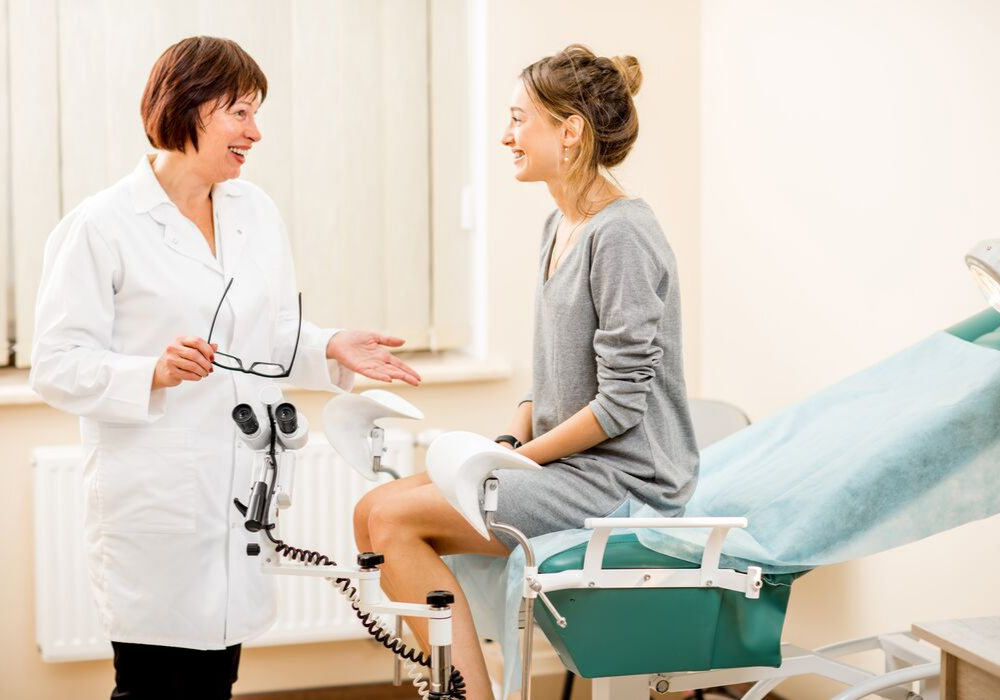
This is a guide to the most common questions we hear as Gynecologists and women’s health experts.
Question #1: Is a pap smear really necessary?
Yes, a pap smear is necessary and we’ll tell you why. But first, let us put your minds at ease: you may not need a pap smear at every annual exam. In order to understand the importance of a pap smear and that it’s not just a way for your gynecologist to invade your privacy, you have to know what we’re testing for.
An abnormality in your pap smear test could potentially be a sign of cervical cancer or human papillomavirus (HPV) in which case you will need additional testing.
So, yes it is necessary that you get a pap smear regularly, particularly if you have a prior history of cervical cancer, HIV infection, immune-system compromise, or exposure to DES (diethylstilbestrol).
Question #2: My periods are awful. How can I make it better?
If your periods are giving you a lot of trouble every month, you don’t just have to suck it up and deal, we have solutions! A painful period could mean such heavy bleeding that you soak through your clothes unexpectedly or it could mean physical pain and cramps that force you to miss work or other activities due to immense discomfort. It looks different for every woman but modern medicine can help.
A pill is an option that many women choose to help manage their periods even if they don’t need it for contraception. The IUD is another way to help control your periods and minimize the painful effects of your menstruation cycle. It uses the hormone progestin to prevent the endometrium or uterine lining from proliferating resulting in lighter periods or nothing at all.
Long story short, life is too short to be losing a few days each month dealing with a painful period. We want to help, you just have to let us know.
Question #3: I want to get pregnant. What do I need to do to prepare?
Pregnancy health starts way before conception so it’s important to talk to your OB-GYN about how to stop bad habits that can harm your baby and begin good habits to increase the chances of carrying a healthy baby to term. Those bad habits include quitting smoking and drinking and placing more emphasis on a healthy lifestyle and weight gain. These steps should be taken at least six months before you start trying to conceive. During your first meeting with an OB-GYN, your doctor will discuss with your family, medical, and genetic history, medications that you are currently taking, and how to make sure your lifestyle aligns with a healthy pregnancy. You should also start taking a prenatal vitamin with folic acid three to six months before pregnancy to ensure optimal health for both you and your baby-to-be.
Question #4: Why do I smell down there?
Do you find that there’s a strange odor coming from your vagina even when you’ve just showered? It’s more common than you think.
The vagina has a natural scent but it shouldn’t be unpleasant, yeasty, or “fishy.” If you find any of these things to be true, it could be a sign of infection and you need to bring this up with your gynecologist on your visit.
Question #5: How often do I need to get a pelvic exam?
A pap smear and pelvic exam are not one and the same. A pap smear is the collection of cells from the cervix to screen for HPV and cervical cancer. A pelvic exam is the inspection of the pelvic organs which includes the vagina, vulva, cervix, uterus, bladder, and rectum. You should have a pelvic exam every year. This is important to not only screen for problems that can arise in the pelvis, but also to make sure everything in that area is working properly.
Question #6: Do I really need a mammogram or can I just do a breast exam and be done?
A breast exam will generally be part of your annual exam as your doctor will check for breast lumps, nipple discharge, and irregular thickening of tissue. A mammogram, however, is a much more comprehensive process and it can find things that a physical breast exam can’t. There is no industry standard of when you should start getting mammograms, so you should talk to your gynecologist but a general consensus is that you should start getting annual mammograms at the age of 40 and 50. We also recommend a monthly self-breast exam.
Question #7: What are you going to do to me at my annual exam?
We call our annual exams well-woman visits too. The focus of a well-woman visit is preventative care. The choice to address both well care and medical issues is offered for the convenience of avoiding two visits; however, you may owe a cost-share/copay for this additional service.
The following is what is included in a well-woman visit:
- A review of your current health and medical history.
- Counseling about ways to improve your health.
- A physician exam tailored to your preventative care needs.
- Immunizations and screening tests, if needed (Some insurances will not cover these tests).
Question #8: What’s the best birth control method?
It’s probably not the answer you wanted to hear but it really depends on your specific situation, your medical and family history, your health needs, etc. There are a lot of birth control options out there nowadays so it’s important that you discuss with your doctor the pros and cons of each one.
Conclusion
Those are the most frequently asked questions that we hear for a gynecologist. If you have any other questions please give us a call at 757-461-3890 or use our contact page today!

Written By Tidewater Physicians For Women


828 Healthy Way Unit 330
Virginia Beach, VA 23462
Fax: 757-467-0301
844 Kempsville Road #208
Norfolk, VA 23502
Fax: 757-461-0836
Appointments:
757-461-3890
Inquiries:
757-461-3890
Notice of Privacy Practices
Notice of Financial Policies

© Tidewater Physicians for Women